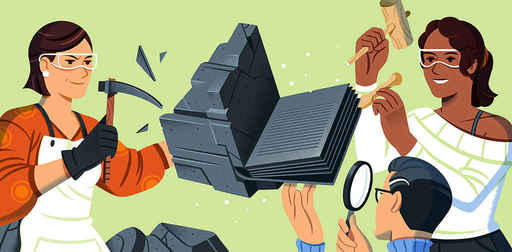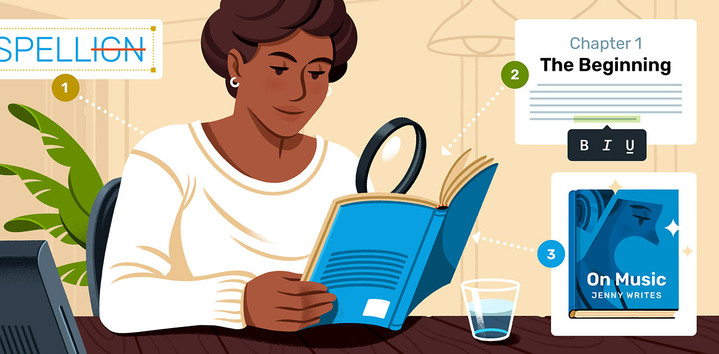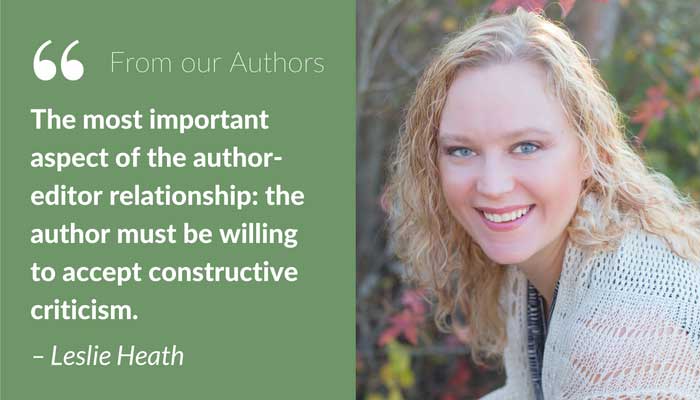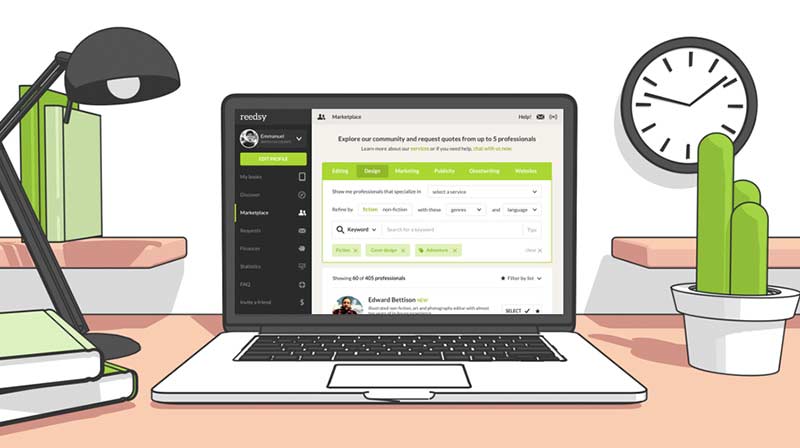What is developmental editing?
Developmental editing is a phase in the book publishing process where editors work with authors to resolve “big picture” issues in their manuscripts, including structure, form, plot, and character. Because of its focus on wider story elements, this type of editing normally won't address sentence-level errors such as punctuation and grammar typos.
Good developmental editing will bear your target audience in mind and assess your work in relation to industry standards and expectations. Only once your manuscript has been revised, reshaped, and developed will it be ready for a copy edit and proofread. But where can you find a developmental editor with the right experience to take your story to the next level?
Look no further, here are the professionals who can help
David R.
Editor with 10+ years experience in short fiction, literary fiction, novellas, and children's books. Let me help make every word count!
view profileSean L.
Proofreader/editor for 9+ years, reader for 40+, and as a lifelong fan, horror is my go-to genre.
view profileLouise W.
I'm an author and editor, specialising in literary fiction, women's fiction, psychological thrillers, and urban fantasy.
view profileChris E.
I've worked with New York Times bestsellers in military, history, politics, current conflicts, memoir, sci-fi fantasy, and action thrillers.
view profileVanessa C.
I'm an award-winning Young Adult and Children's author who works as a literary consultant/editor in all genres, specialising in YA fiction.
view profileHow to choose a developmental editor
No developmental editor is definitively ‘better’ than all others — each professional has a unique set of experiences, skills, and working styles that makes them better suited to certain authors and projects. Here are a few things to consider when searching for your editor.
- Shortlist editors based on their specialty genres. A developmental editor with 10 bestselling memoirs to their name might not be the best person to tackle your paranormal romance novel.
- Analyze their professional experience. Do you prefer editors who have worked with famous authors? Or do you need one who’s successfully worked with first-time authors?
- Determine what style of critique you respond best to. Some writers need editors who are positive and encouraging. Others prefer a more direct style of feedback.
- Make sure your communication preferences match up. Are face-to-face conversations essential to you? Do you need weekly updates or are you fine to hear from them at a few key points during their edit?
An editor’s honest critical feedback can only be successful if an author is open to critique and revision. Developmental editing is subjective, and each editor works a little differently, but the bottom line is that no writer works alone: books are collaborative creations, regardless of how you publish or how experienced you are.
Tips for working with a developmental editor
While most freelance developmental editors will do their best to accommodate a client’s needs, there are still things writers can do to get the most out of their editing experience.
- Be as flexible as possible. Don’t wait until the month before your launch date to hire an editor. If you do manage to find an editor who's ready to start immediately, they may inflate their quote to compensate for the tight deadline.
- Fix your typos and grammar first. Basic spelling mistakes will distract even the most focused editors. If prospective editors discover that your manuscript is hard to read, many of them will also adjust their quotes to compensate. At the very least, pass your manuscript through spellcheck before hiring an editor.
- Make sure you’re both on the same page. Before your editor starts their developmental edit, you both need to agree on the direction that your book will take. The editor might later return with suggestions for where your manuscript could go — but if they don’t understand your initial vision, that’s a recipe for disaster.
By doing your research and following a few simple tips, you can find a developmental editor who’s perfect for your project (at a price that you can handle).
Should I get an editorial assessment first?
If authors are not sure whether they’re ready for developmental editing (or if budget is a major concern) we will often suggest an editorial assessment. This is a service where editors do an overview evaluation of big-picture issues like characterization, plot, structure, and style. Their assessment is delivered back to the author in the form of an edit letter that provides detailed feedback and suggestions for revision.
What is the difference between developmental editing and copy editing?
Whilst all types of editing have some overlap, there are crucial differences between developmental editing and copy editing. Copy editors are language technicians. They look at manuscripts from the perspective of grammar, punctuation, word choice, and consistency (did your character’s eye color change between chapters?). Developmental editors are also concerned with these detailed aspects of writing — but will tend to address them broadly.
The copy editing that follows a developmental edit will involve a single-minded approach, looking at grammar, inconsistencies, and substituting weak words and phrases for more powerful alternatives.
After a round of developmental editing — also called structural or substantive editing — a manuscript can change significantly; for inexperienced writers, accepting direct and honest feedback can be a difficult experience. Much of what you have spent many weeks, months, or even years writing can be cut, shaped, moved, or heavily criticized. For this reason, only consider copy editing after all your developmental work has been completed.



